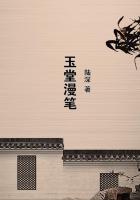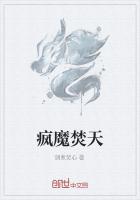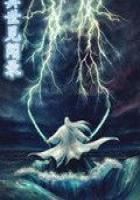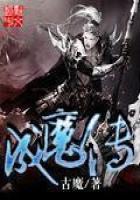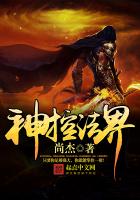The sitting opened with a report by Dserzhinsky, that strange ascetic who, when in prison in Warsaw, insisted on doing the dirty work of emptying the slops and cleaning other people's cells besides his own, on a theory that one man should where possible take upon himself the evil which would otherwise have to be shared by all; and in the dangerous beginning of the revolution had taken upon himself the most unpopular of all posts, that of President of the Extraordinary Commission. His personal uprightness is the complement of an absolute personal courage, shown again and again during the last eighteen months. At the time of the Left Social Revolutionary mutiny he went without a guard to the headquarters of the mutineers, believing that he could bring them to reason, and when arrested by them dared them to shoot him and showed so bold a front that in the end the soldiers set to watch him set him free and returnedto their allegiance. This thin, tallish man, with a fanatic face not unlike some of the traditional portraits of St. Francis, the terror of counter- revolutionaries and criminals alike, is a very bad speaker. He looks into the air over the heads of his audience and talks as if he were not addressing them at all but some one else unseen. He talks even of a subject which he knows perfectly with curious inability to form his sentences; stops, changes words, and often, recognizing that he cannot finish his sentence, ends where he is, in the middle of it, with a little odd, deprecating emphasis, as if to say: "At this point there is a full stop. At least so it seems."He gave a short colourless sketch of the history of the Extraordinary Commission. He referred to the various crises with which it had had to deal, beginning with the drunken pogroms in Petrograd, the suppression of the combined anarchists and criminals in Moscow (he mentioned that after that four hours' struggle which ended in the clearing out of the anarchists' strongholds, criminality in Moscow decreased by 80 per cent.), to the days of the Terror when, now here, now there, armed risings against the Soviet were engineered by foreigners and by counter-revolutionaries working with them. He then made the point that throughout all this time the revolution had been threatened by large-scale revolts. Now the revolution was safe from such things and was threatened only by individual treacheries of various kinds, not by things which needed action on a large scale. They had traitors, no doubt, in the Soviet institutions who were waiting for the day (which would never come) to join with their enemies, and meanwhile were secretly hampering their work. They did not need on that account to destroy their institutions as a whole. The struggle with counter-revolution had passed to a new stage. They no longer had to do open battle with open enemies; they had merely to guard themselves against individuals. The laws of war by which, meeting him on the field of battle, the soldier had a right to kill his enemy without trial, no longer held good. The situation was now that of peace, where each offender must have his guilt proved before a court. Therefore the right of sentencing was removed from the Extraordinary Commission; but if, through unforeseen circumstances, the old conditions should return, theyintended that the dictatorial powers of the Commission should be restored to it until those conditions had ceased. Thus if, in case of armed counter- revolution, a district were declared to be in a state of war, the Extraordinary Commission would resume its old powers. Otherwise its business would be to hand offenders, such as Soviet officials who were habitually late (here there was a laugh, the only sign throughout his speech that Dserzhinsky was holding the attention of his audience), over to the Revolutionary Tribunal, which would try them and, should their guilt be proved, put them in concentration camps to learn to work. He read point by point the resolutions establishing these, changes and providing for the formation of Revolutionary Tribunals. Trial to take place within forty- eight hours after the conclusion of the investigation, and the investigation to take not longer than a month. He ended as he ended his sentences, as if by accident, and people scarcely realized he had finished before Sverdlov announced the next speaker.
Krylenko proposed an amendment to ensure that no member of the Revolutionary Tribunal could be also a member of the Extraordinary Commission which had taken up and investigated a case. His speech was very disappointing. He is not at his best when addressing a serious meeting like that of the Executive Committee. The Krylenko who spoke to-night, fluently, clearly, but without particular art, is a very different Krylenko from the virtuoso in mob oratory, the little, dangerous, elderly man in ensign's uniform who swayed the soldiers' mass meetings in Petrograd a year and a half ago. I remember hearing him speak in barracks soon after the murder of Shingarev and Kokoshkin, urging class struggle and at the same time explaining the difference between that and the murder of sick men in bed. He referred to the murder and, while continuing his speech, talking already of another subject, be went through the actions of a man approaching a bed and killing a sleeper with a pistol. It was a trick, of course, but the thrilling, horrible effect of it moved the whole audience with a shudder of disgust. There was nothing of this kind in his short lecture on jurisprudence to-night.
Avanesov, the tall, dark secretary of the Executive Committee, with the face of a big, benevolent hawk hooded in long black hair, opposedKrylenko on the ground that there were not enough trustworthy workers to ensure that in country districts such a provision could be carried out. Finally the resolution was passed as a whole and the amendment was referred to the judgment of the presidium.
The Committee next passed to the consideration of the Extraordinary Tax levied on the propertied classes. Krestinsky, Commissary of Finance, made his report to a grim audience, many of whom quite frankly regarded the tax as a political mistake. Krestinsky is a short, humorous man, in dark spectacles, dressed more like a banker than like a Bolshevik. It was clear that the collection of the tax had not been as successful as he had previously suggested. I was interested in his reference to the double purpose of the tax and in the reasons he gave for its comparative failure. The tax had a fiscal purpose, partly to cover deficit, partly by drawing in paper money to raise the value of the rouble. It had also a political purpose. It was intended to affect the propertied classes only, and thus to weaken the Kulaks (hard-fists, rich peasants) in the villages and to teach the poorer peasants the meaning of the revolution. Unfortunately some Soviets, where the minority of the Kulaks had retained the unfair domination given it by its economic strength, had distributed the tax- paying equally over the whole population, thus very naturally raising the resentment of the poor who found themselves taxed to the same amount as those who could afford to pay. It had been necessary to send circular telegrams emphasizing the terms of the decree. In cases where the taxation had been carried out as intended there had been no difficulty. The most significant reason for the partial unsuccess was that the propertied class, as such, had already diminished to a greater extent than had been supposed, and many of those taxed, for example, as factory owners were already working, not as factory owners, but as paid directors in nationalized factories, and were therefore no longer subject to the tax. In other words, the partial failure of the tax was a proof of the successful development of the revolution. (This is illustrated by the concrete case of "Uncle" recorded on p. 73.) Krestinsky believed that the revolution had gone so far that no further tax of , this kind would be either possible or necessary.


